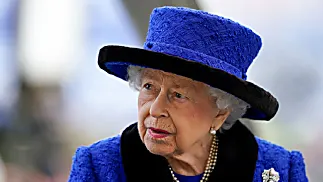Again history proves you wrong and almost all but loony left-wing idealogues would see the deployment of the US along the border would secure the joint and importantly just by doing no enforceable actions free up the multitude of Border patrol agents that are off the front lines
They can also be used in terms of intel gathering patrol and support to the BP. Heres a piece that's easy reading for you and I've bolded the important bits as I know you might otherwise struggle to get the gist of the article
Yo @Lomu how about you answer a simple question
Do you think the US should secure the border and enforce its laws and prevent illegal criminals from crossing its southern flank?Sending troops to border is legal
BY JOSEPH MORENO, OPINION CONTRIBUTOR — 01/21/19 10:00 AM EST 630THE VIEWS EXPRESSED BY CONTRIBUTORS ARE THEIR OWN AND NOT THE VIEW OF THE HILL
Few issues inspire more passion and debate than that of immigration policy, particularly as the federal government remains paralyzed while our leaders in Washington fight over border wall and border security funding. These emotions have been further inflamed by President Trump using the military to help secure the southern border, a move which some have criticized as both unnecessary and improper as a matter of law. There are certainly policy and practical arguments to be made as to why using military force is not the most effective way to enforce our immigration laws. However, from a strictly legal perspective, the current use of troops at the border is likely to withstand judicial scrutiny if challenged in court.
This began last November. At the request of the Department of Homeland Security, President Trump approved the deployment by the Department of Defense of about 3,000 National Guard and active troops to the southern border for 45 days. Their initial mission was to provide transportation, engineering, logistics, and medical support for Customs and Border Protection agents while they performed their law enforcement duties.This was later broadened to include protecting Customs and Border Protection personnel. This could include a show of force, crowd control, temporary detention, and searches of individuals who posed a threat to federal agents. However, the Pentagon made clear in defining the mission parameters that military personnel would not perform law enforcement type functions such as arrests and searches. The mission was later extended to the end of January and could be extended further.
There is in fact precedent for this. The last two administrations also utilized the military at the southern border. In 2010, President Obama authorized approximately 1,200 troops for a year to support Operation Phalanx, whose purpose was to provide transportation and logistical support to Customs and Border Protection. In 2006, President Bush deployed approximately 6,000 troops to the southern border where they remained for two years in a similar capacity for Operation Jump Start. In each case, forces were activated from the Army National Guard and sent to locations along the border between the United States and Mexico.
While federal law prohibits the military from conducting law enforcement activities, a number of exceptions and caveats that are often overlooked by critics of the current deployment. The Posse Comitatus Act of 1878 prohibits active duty Army and Air Force troops from providing direct assistance in “executing” the domestic laws of the United States. This refers to activities such as making arrests, searching for and seizing property as well as investigating criminal activity. These are the types of activities which the federal government prohibits all troops, not just those at the border, from engaging in. However, the Posse Comitatus Act does not prohibit indirect law enforcement assistance activities including training, information sharing, and utilizing certain military equipment.
Moreover, the law does not apply to the Navy or the Marine Corps, and while the Pentagon has enacted a policy that applies the restrictions to the other service branches, the policy does not have the force of law and could be changed going forward. The Posse Comitatus Act also does not apply to the use of the Coast Guard or to National Guard when under state control as is often the case. As a result, the Pentagon has a number of resources at its disposal that allow it to legally utilize military resources at the border despite the limitations thought to be imposed by the law.
Furthermore, the Supreme Court has recognized that the president has the inherent authority under Article II of the Constitution to protect federal functions, property, and personnel. This is the authority that the administration has asserted in the deployment of troops whose mission is to provide certain indirect law enforcement assistance to Customs and Border Protection agents and to use force if necessary to protect them. This executive authority is not restricted by the Posse Comitatus Act.
Reasonable individuals can disagree on whether it makes sense to use the military to help secure our national borders. Ever since the September 11 attacks, the number of Customs and Border Protection agents has grown from 9,000 to nearly 21,000, and they still struggle to police a porous southern border that spans more than 1,900 miles across four states. The military has immense resources and personnel that can be invaluable in supporting the national security goal of ensuring our country is safe.
On the other hand, it is certainly hard to deny that a military presence on the southern border is expensive, increases the potential for accidental deadly force against civilians, and adds even more emotion to an already volatile situation with international implications. But regardless of where you come down on the politics of this issue, the current deployment mission and use of troops on the southern border most likely is legal.Joseph Moreno is a former federal prosecutor with the Department of Justice, a former staff member with the 9/11 Review Commission, and a United States Army combat veteran. He is now a litigation partner with Cadwalader Wickersham & Taft. Follow him on Twitter @JosephMoreno.
- Forums
- World Politics
- I agree. Youre right. Fiannly time to investigate....BIDEN!!! 31 million?????
Again history proves you wrong and almost all but loony...
- There are more pages in this discussion • 9 more messages in this thread...
You’re viewing a single post only. To view the entire thread just sign in or Join Now (FREE)














